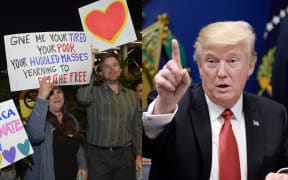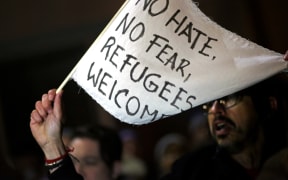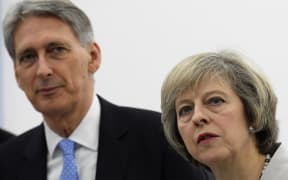Actions speak louder than words and after more than a year of inflammatory rhetoric, US President Donald Trump has used executive orders to prove to those who put him in office that he will act on his controversial promises - and there were immediate consequences.
More than 134 million people are now at least temporarily banned from entering the country under his sweeping executive order signed at 4.42pm on Friday aimed at "Protecting the nation from foreign terrorist entry into the United States".
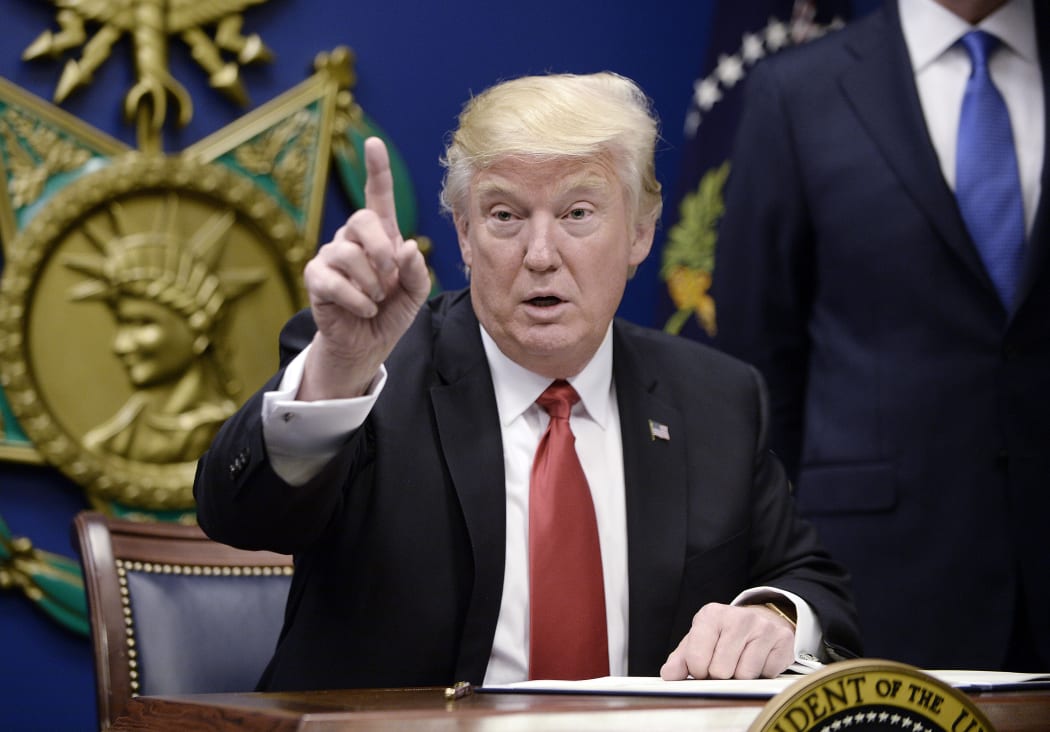
President Donald Trump signs Executive Orders in the Hall of Heroes at the Department of Defense in Virginia. Photo: AFP
What was Trump's order and who is affected?
It bans travel from seven majority Muslim countries - Iran, Iraq, Somalia, Syria, Sudan, Libya and Yemen - for 90 days, suspends all refugee admissions for 120 days with "case-by-case" exceptions and suspends entry of Syrian refugees indefinitely.
There has been confusion about permanent residents and green card holders due to conflicting advice sent to airlines by the White House. Officially it appears that they can board flights to the US but they may face extra screening or be detained on arrival.
However, human rights groups say that green card holders trying to return from holidays, business or study are being stopped in foreign airports.
White House officials briefing reporters have said green card holders who are stranded outside the US will need to meet with a consular officer and seek a case-by-case visa waiver to return home. The requirements to get a waiver remain unclear.
Dual nationals born in any of the seven banned countries are also covered by the ban even if they hold passports from a US-allied country like Australia.
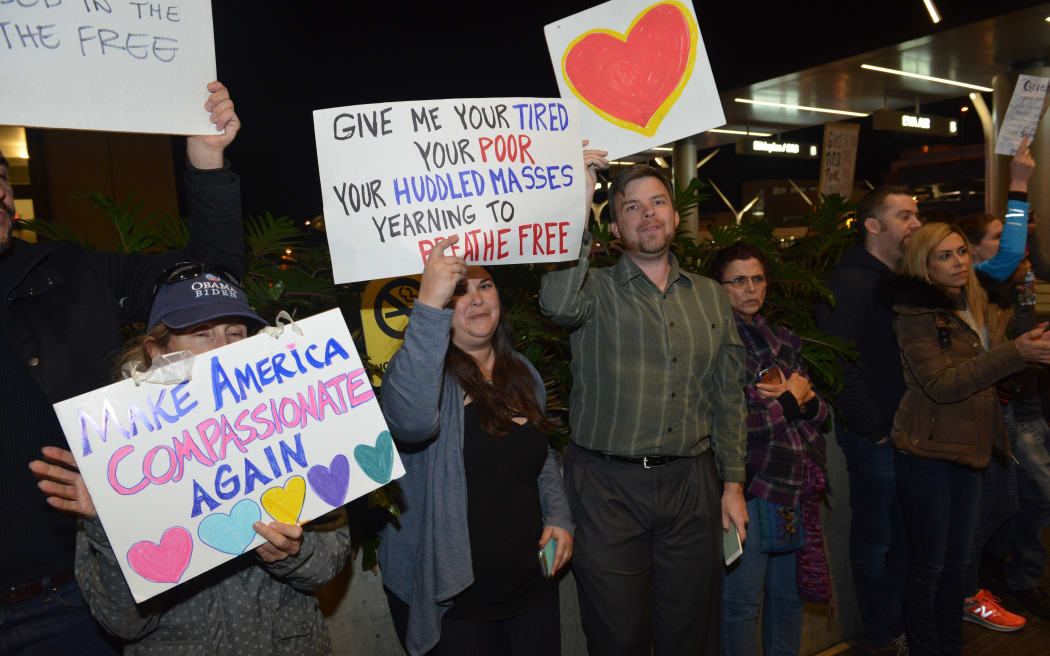
Protesters at Los Angeles international airport. Photo: AFP
Why these countries?
The New York Times reports that research by the University of North Carolina shows that no terrorist attack has been committed on US soil by anyone who has emigrated from any of the seven countries affected in the past 15 years.
Saudi Arabia, Egypt, Afghanistan and Pakistan are not included in the ban despite documented terrorist activity and movement of militants from those countries, nor are Indonesia or Turkey where the Trump Organisation does business.
"It's not a Muslim ban, but we were totally prepared," Mr Trump said at the White House.
What was the response?
While Brooklyn district Federal Court Judge Ann Donnelly has blocked part of the order in response to a case brought by the American Civil Liberties Union (ACLU), her ruling applies only to those who were already in transit, preventing the Government from deporting them.
Ms Donnelly said the government is "restrained from, in any manner and by any means, removing individuals" who are refugees or have valid visas due to risk of harm if they are deported.
The order does not apply to those who are outside the United States who have not yet commenced their travel. It appears to also mean that those who are being detained at airports could be held until the legal case is complete.
Another Federal District Court judge in Virginia also issued a seven-day order to prevent green card holders being held at Dulles International Airport, just outside Washington DC, from being removed from the country.
Mr Trump has shrugged off the sense of chaos and confusion as refugee advocates scramble to respond and security personnel at US entry points grapple with new, hastily made rules.
What happens now?
When refugee entry eventually resumes the number will be capped at 50,000 over the year, halving the number allowed by the Obama administration. Religious minorities and Christians will be given preference.
Further protests are planned for major airports across the country today after crowds turned out at JFK in New York, O'Hare in Chicago and elsewhere last night in support of detained passengers.
An official from the Department of Homeland Security told the Washington Post that the order had created only minimal disruption with 109 people denied entry to the country and some turned around, 173 people blocked from boarding aircraft in foreign locations, and 81 green card waivers issued so far.
- ABC

